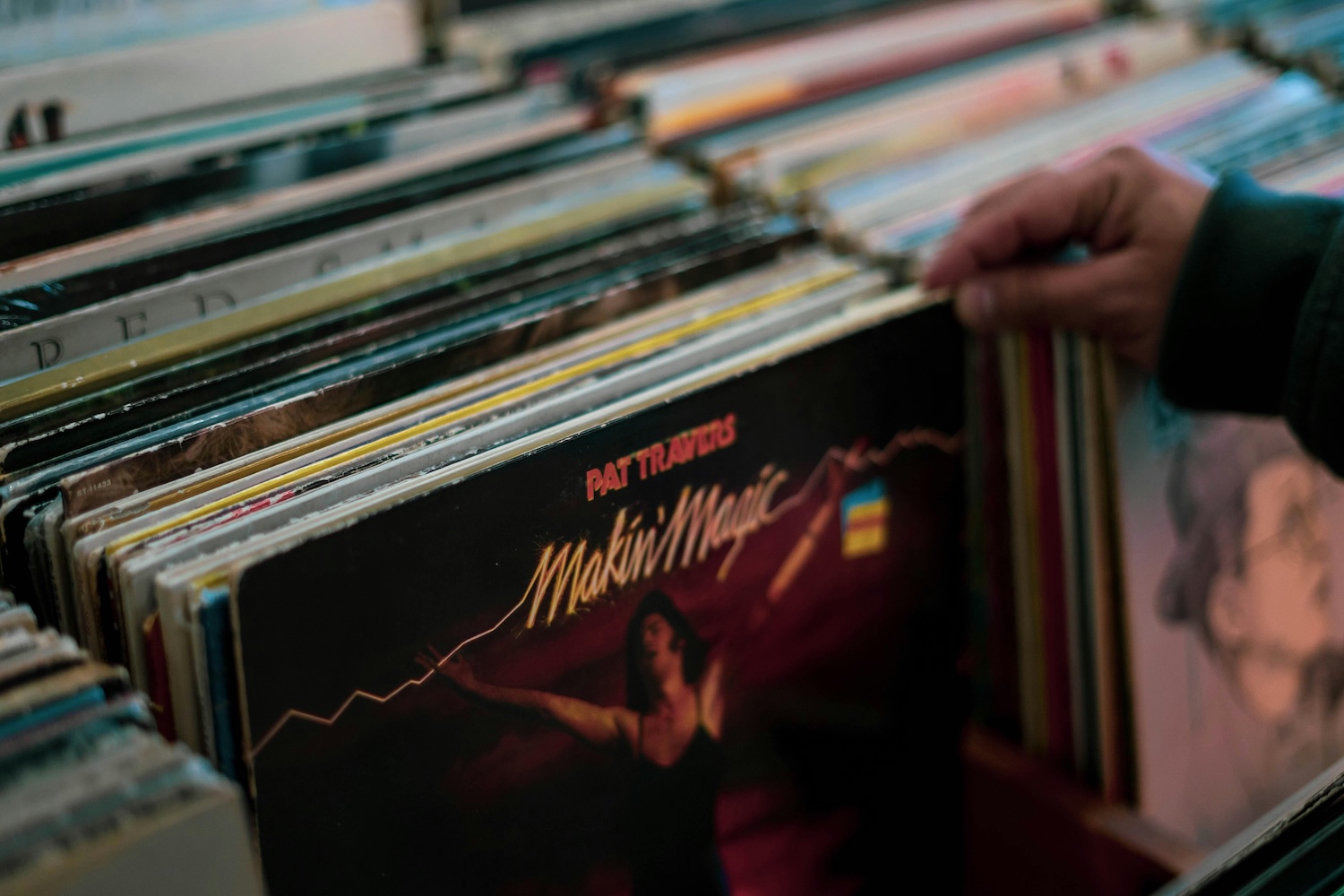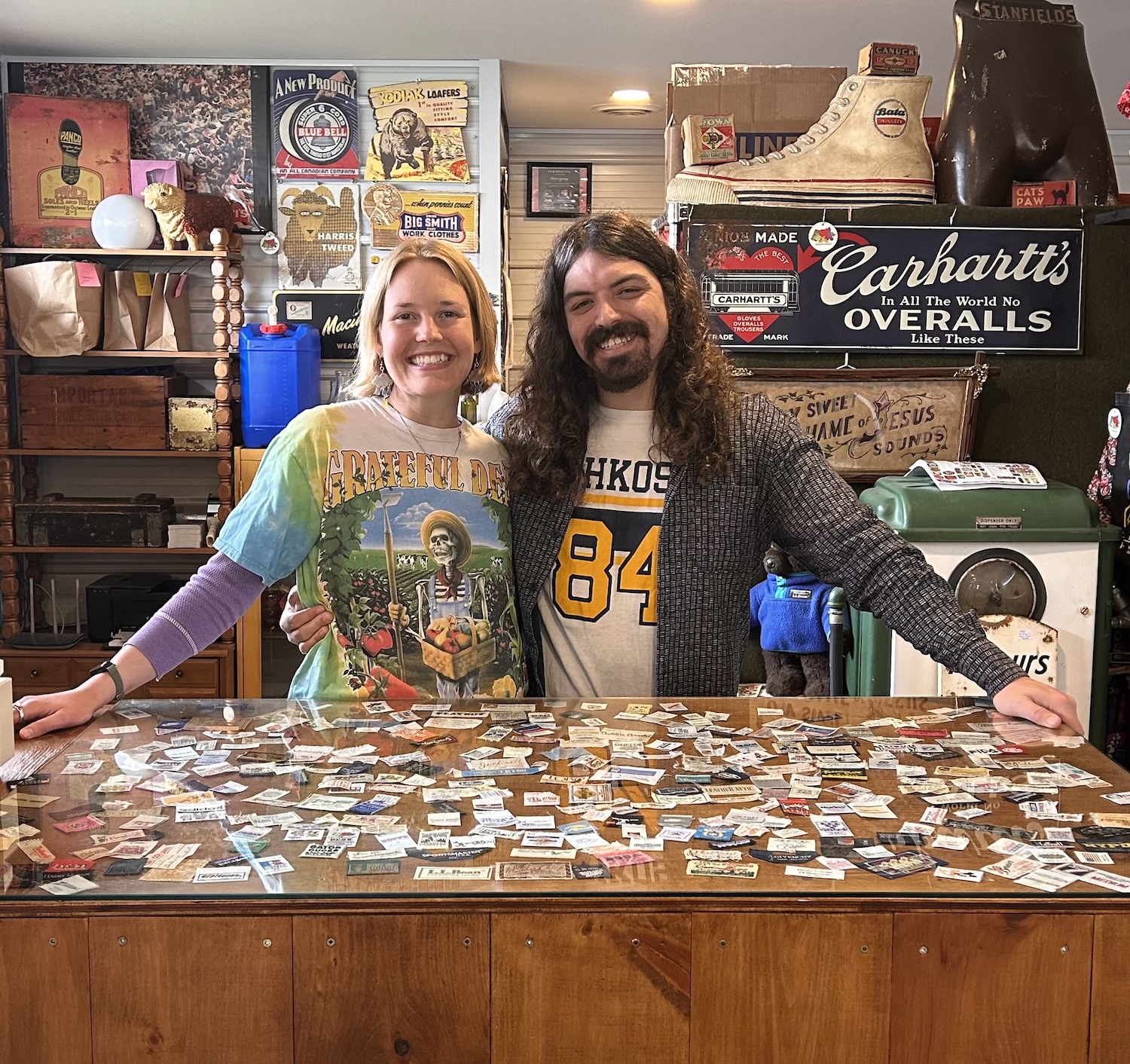
‘Spirit of the past’: Vintage shop Adawegamig is part trading post, part history class
How a streetwear-meets-antique-shop is making its mark in an Ontario First Nations community
The world is full of differences — languages, perspectives, beliefs, tastes. And yet, somehow, in the middle of all that contrast, there are things that connect us to each other.
Sifting through the vintage satin bomber jackets, faded denim and collector's T-shirts at Ontario vintage clothing shop Adawegamig, I can't help but think about all the thrifters, collectors, memory-keepers and storytellers for whom that shared thread is “stuff.”
When I say “stuff,” I don’t mean it in the throwaway sense, but in the deeply human way we attach meaning to objects.
A sweater that smells like your grandmother’s perfume, a piggy bank that reminds you of your childhood or a chipped mug from the ’70s that just feels right in your hands — our “stuff” can hold memory, culture and connection.
After visiting Adawegamig and meeting co-owners Justice and Bronwyn Colwell, I was reminded of the comfort and healing that comes from “stuff.”
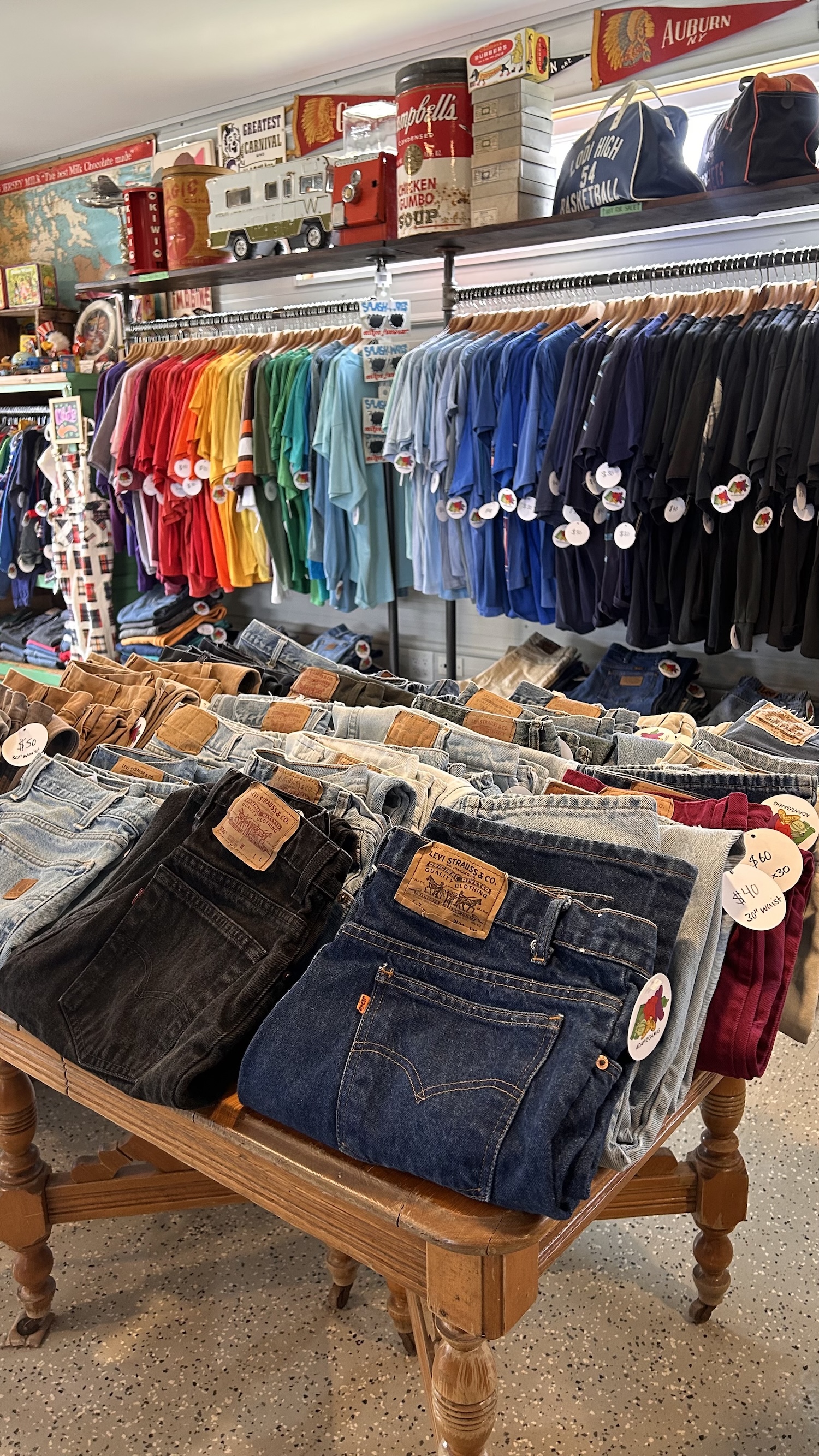
‘Shows what the community can do’
The partners say “the spirit of the past resides” at Adawegamig, which sits on the lands of the Mississaugas of Scugog Island First Nation in Port Perry, Ont., where the Mississauga people were the first to arrive around the year 1700.
Since 2018, the shop has grown a devoted following drawn to its blend of streetwear, vintage garments, antiques, toys and collectibles, first from selling online and at regional markets, and now in its own brick-and-mortar space, which opened in 2023.
Adawegamig, which means “a store, shop or trading post” in Ojibwe, is more than a store. It’s a place where sports, culture and politics intersect. A place where objects are given a second (or third, or fourth) life. A place where “stuff” becomes story.
“This place shows what the community can do,” says Justice. “It kind of breaks the common understanding of what you might find on a First Nation.”
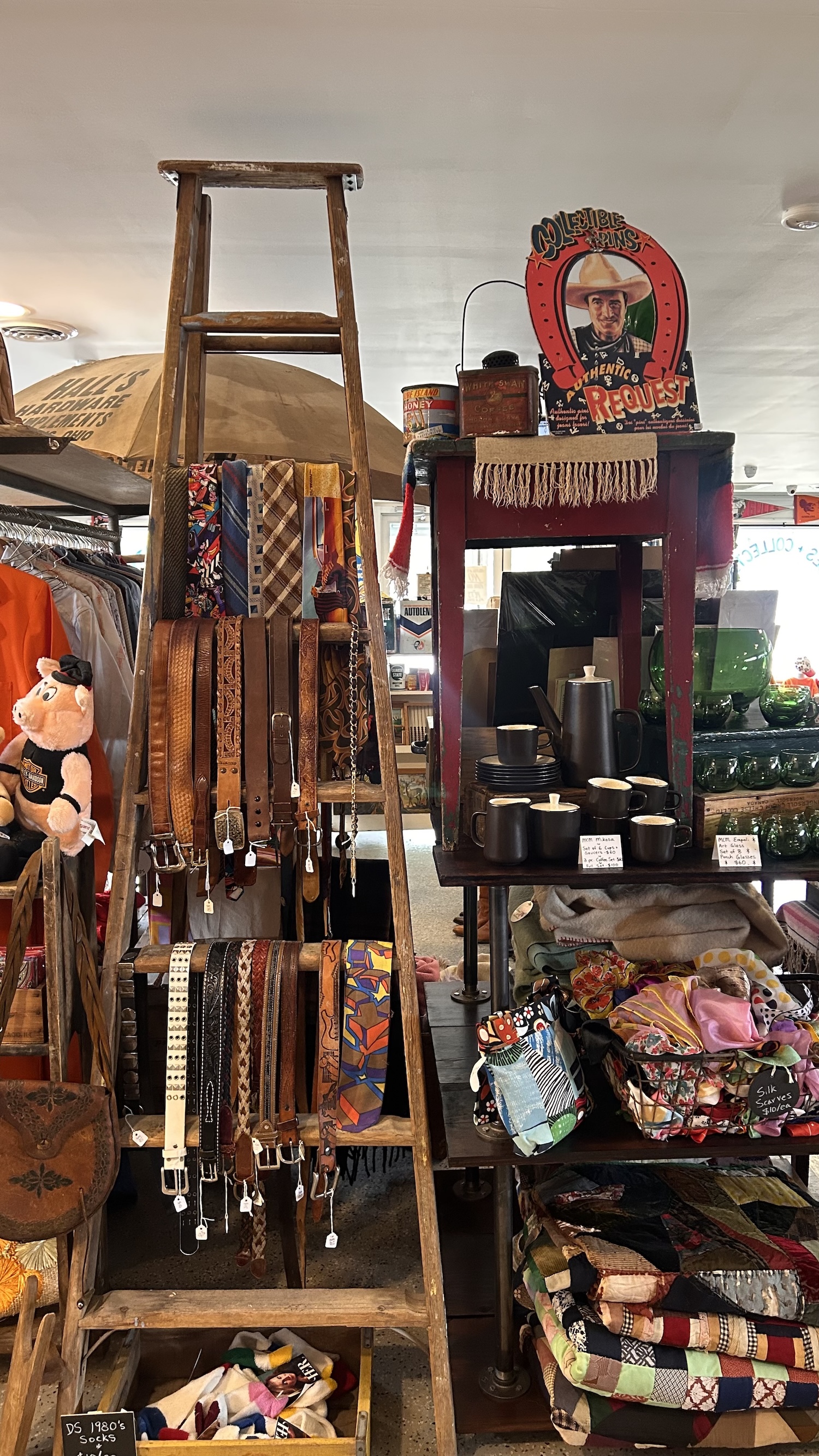
Justice doesn’t frame Adawegamig as a “First Nations business,” but rather as a business owned by a First Nations person — a subtle but important distinction that emphasizes the work while honouring the people behind it and their identities.
Canada is home to more than 50,000 businesses owned by Indigenous people contributing $31 billion to the country’s annual GDP, according to The National Indigenous Economic Development Board.
Still, Adawegamig’s presence in this location matters. It’s a tangible example for Indigenous youth living on the reserve of what’s possible — that something unique and full of soul can exist and thrive right at home.
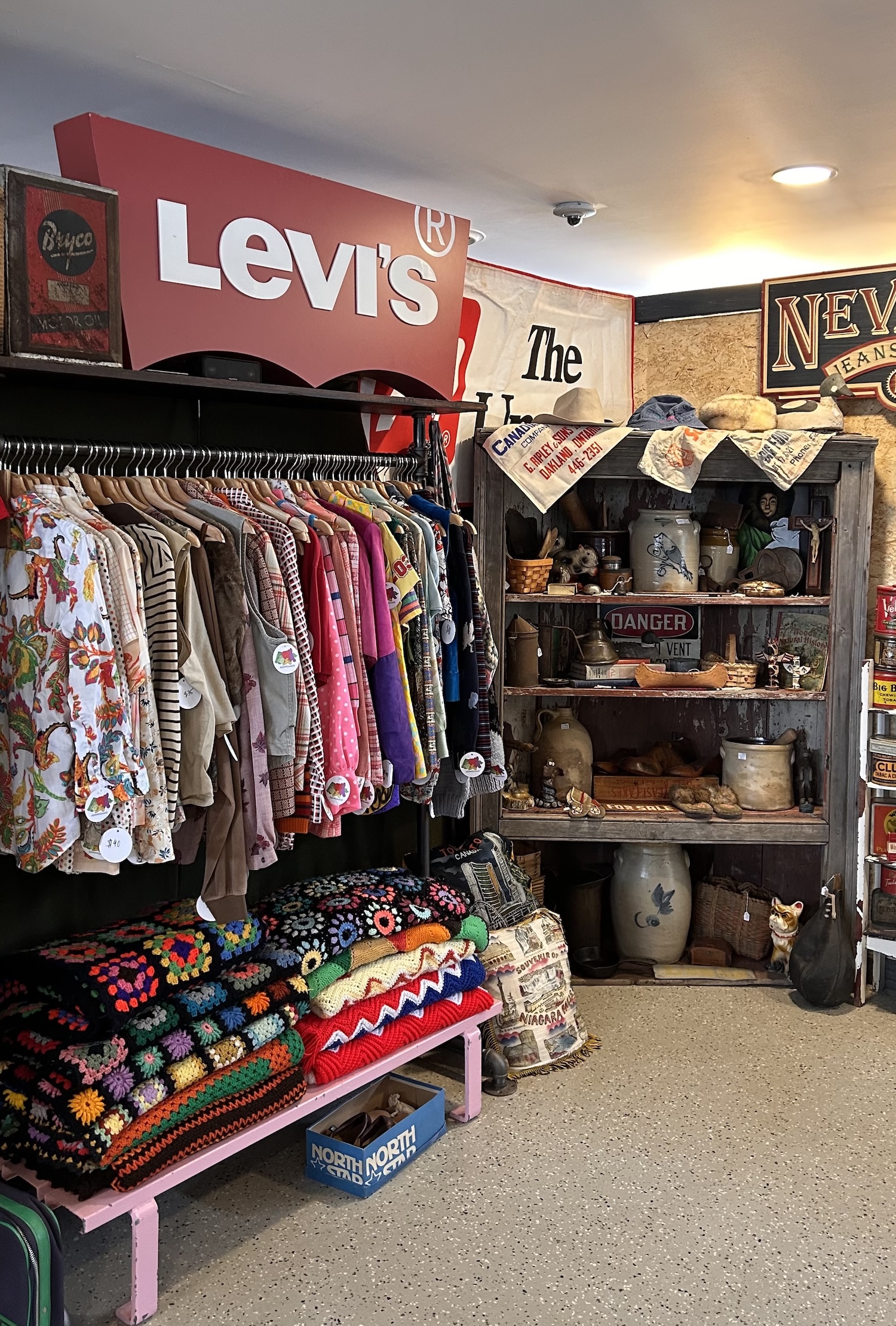
Vintage clothing speaks a language of its own
As we talk, one truth keeps surfacing: Vintage creates common ground.
As travellers, Bronwyn and Justice say they often find themselves in new destinations, such as Japan and the U.S., visiting shops and markets to see how others buy and sell vintage.
They say that while there are small stylistic differences in the antiques and clothes they find, ultimately, the vintage scene vibe remains the same all over the world.
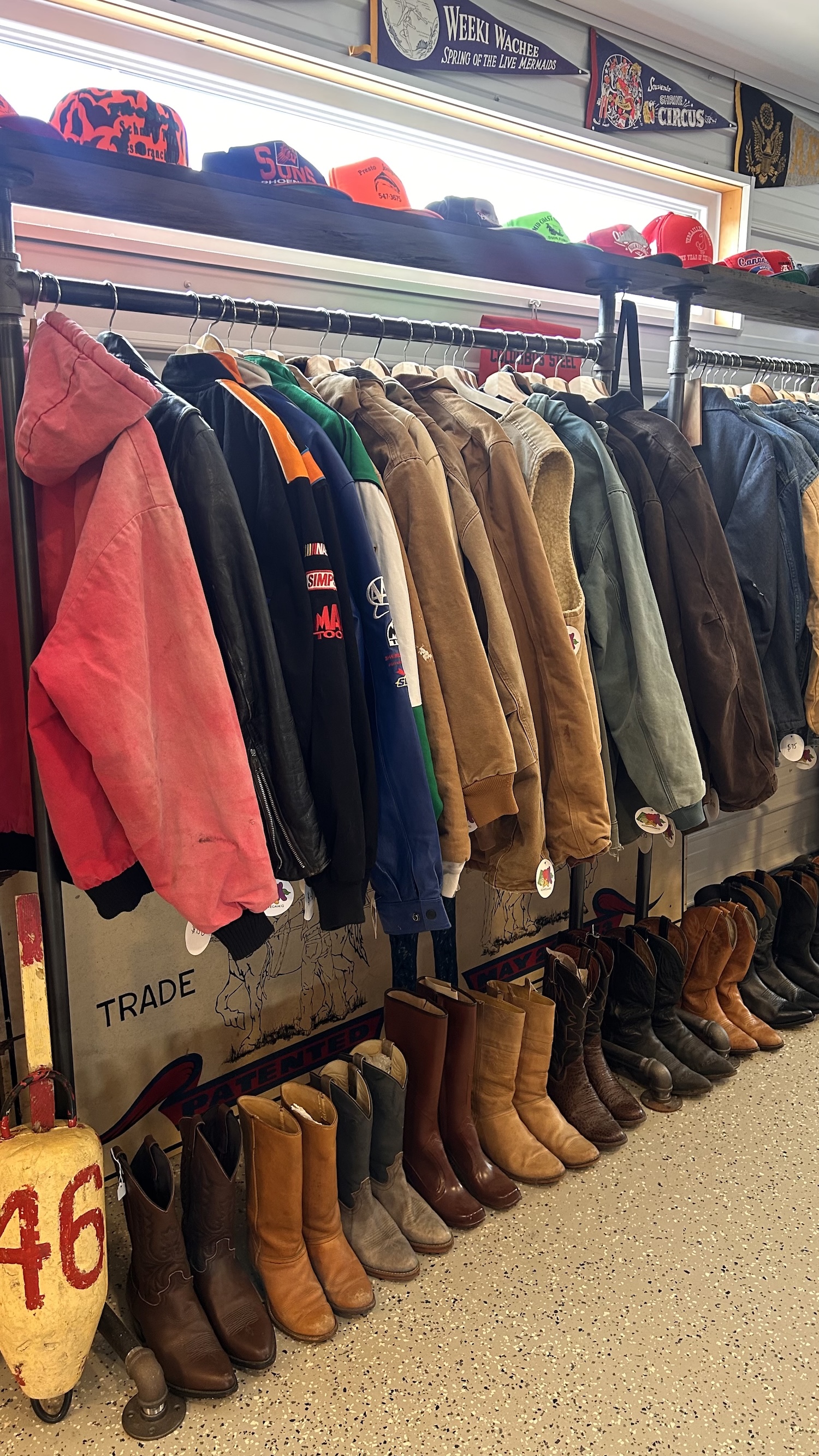
“It’s a commonality,” says Justice.
“It seems like people, everywhere we go, care about their old stuff and think it’s cool. This stuff immediately connects you.”
In a world that’s often divided, thrift and vintage work like an unspoken language. Everyone understands nostalgia. Everyone has memories tied to an old T-shirt, a dish pattern or a toy they thought they’d never see again.
That’s what keeps Adawegamig’s shelves so meaningful. Some pieces are just cool. Others are priceless. Like the original 1940s Carhartt sign Justice once found — so significant that Carhartt’s own archive team called and wanted it back.
Continued below
Find vintage and antique shops near you
Browse our directory
Continued from above
Then there are the countless stories Bronwyn has of customers coming in and spotting an item from their childhood.
“We get people who find items and the nostalgia is real, or people who collect certain things because their parents collected them,” she says. “That kind of connection is pretty special.”
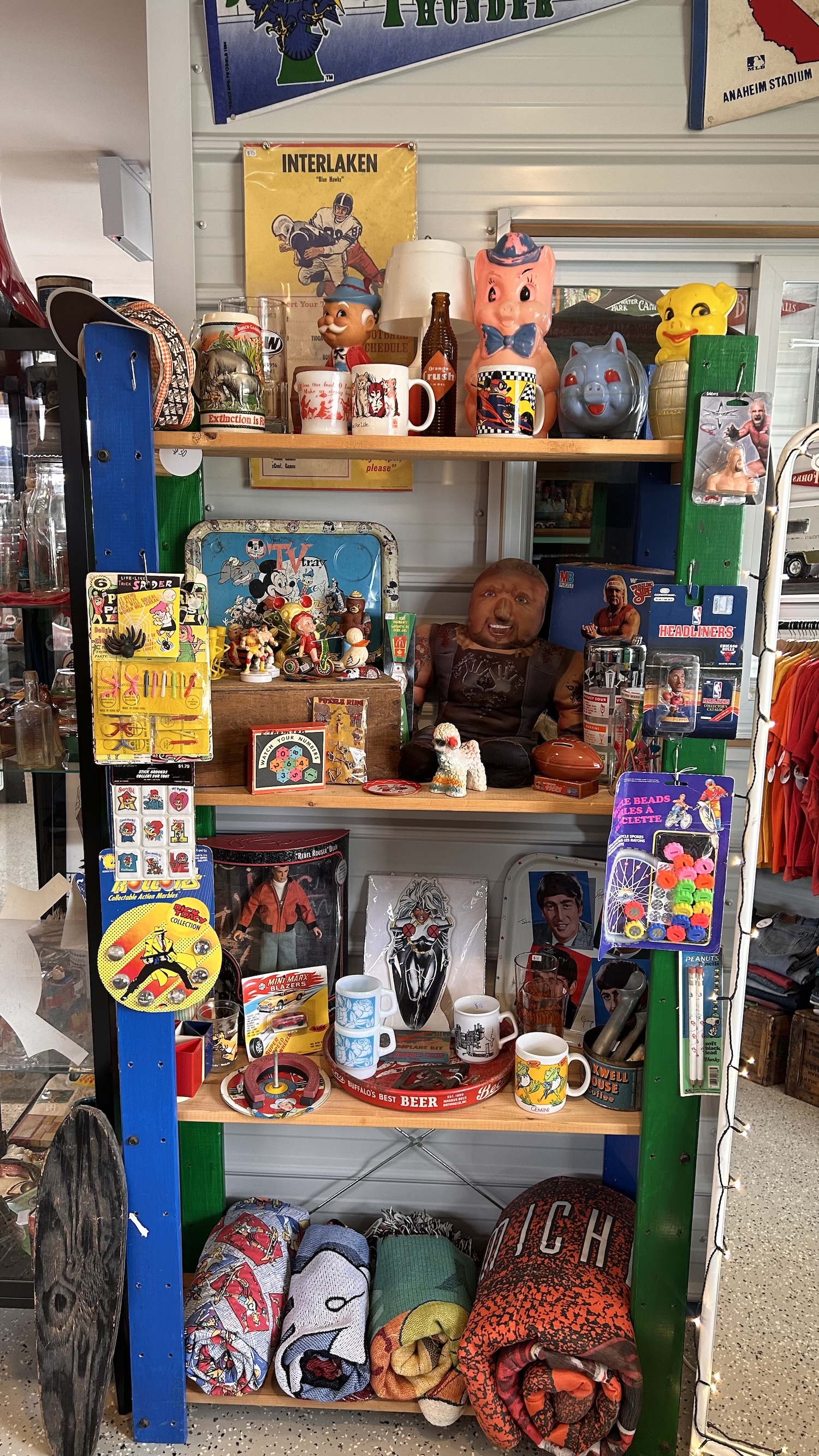
Curated for the vintage-loving community
Adawegamig is packed with gems. The curation is intentional and thoughtful, which is no surprise coming from two creatives. Justice is an art history grad, and Bronwyn specialized in printmaking.
“We try to keep it at a more reasonable price point for the average shopper,” says Bronwyn. “We try to keep in mind someone that just likes vintage clothing and wants to find something unique and cool, even if they don’t have a specific thing in mind.”
Accessibility is a key point for a lot of vintage shops, but to me, what sets Adawegamig apart is their connection to the land, their appreciation for history and the effort they put into preserving it.
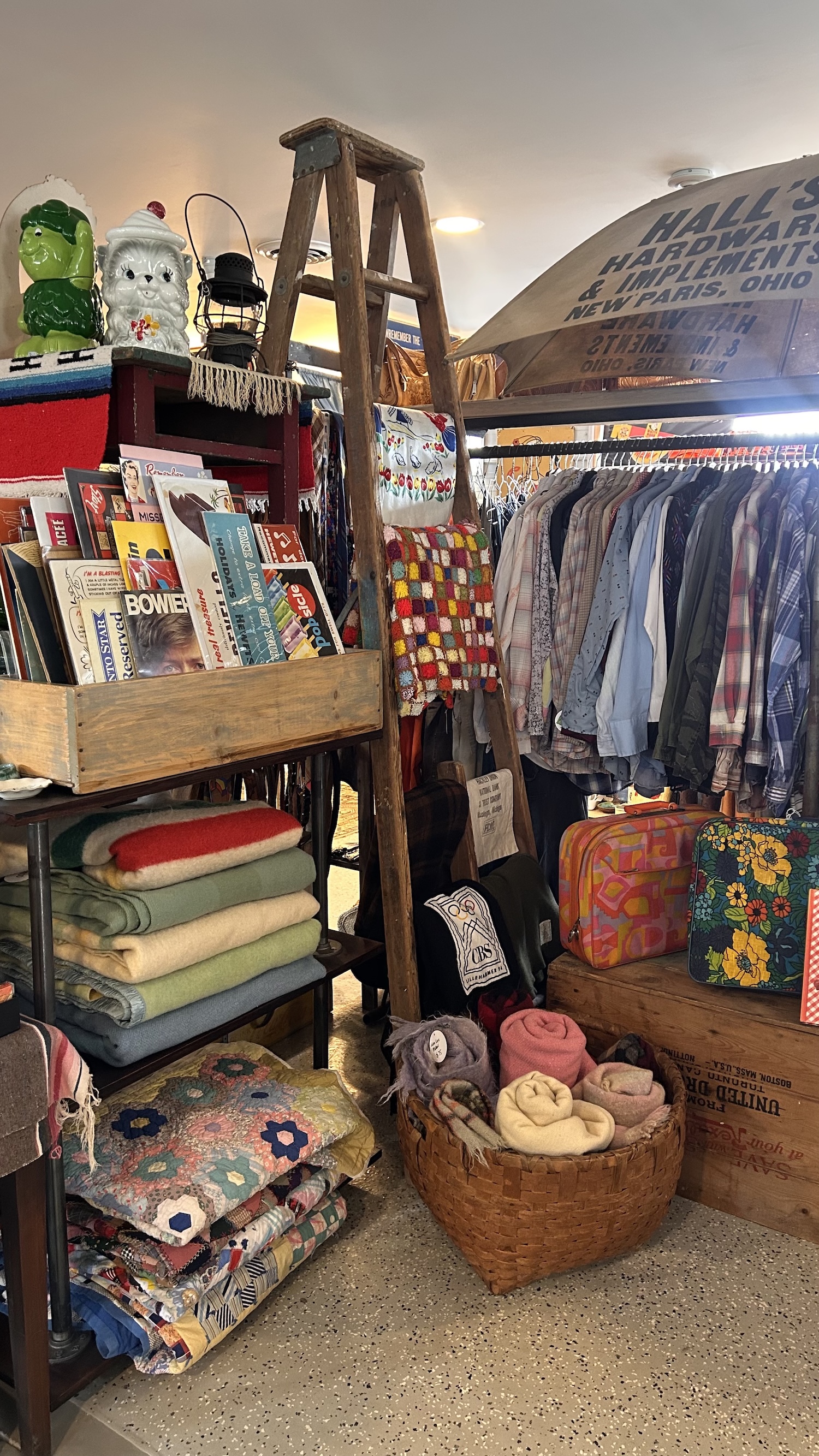
Through an initiative called “Scugog Sundays,” Justice and Bronwyn highlight the history of the town they live in. “We want to communicate our passion for the stuff by doing more than just putting a price tag on it,” says Bronwyn.
The partners make it clear that Adawegamig is not just about business, it’s about care. The care in choosing what goes on the racks. The care in sharing the history of their collection. The care in seeing the value of everyday things.
“There’s endless stuff out there,” says Justice, who’s also a certified personal property appraiser. “It’s just a matter of accessing it. That’s what I love most about this business — it’s finding this stuff.”
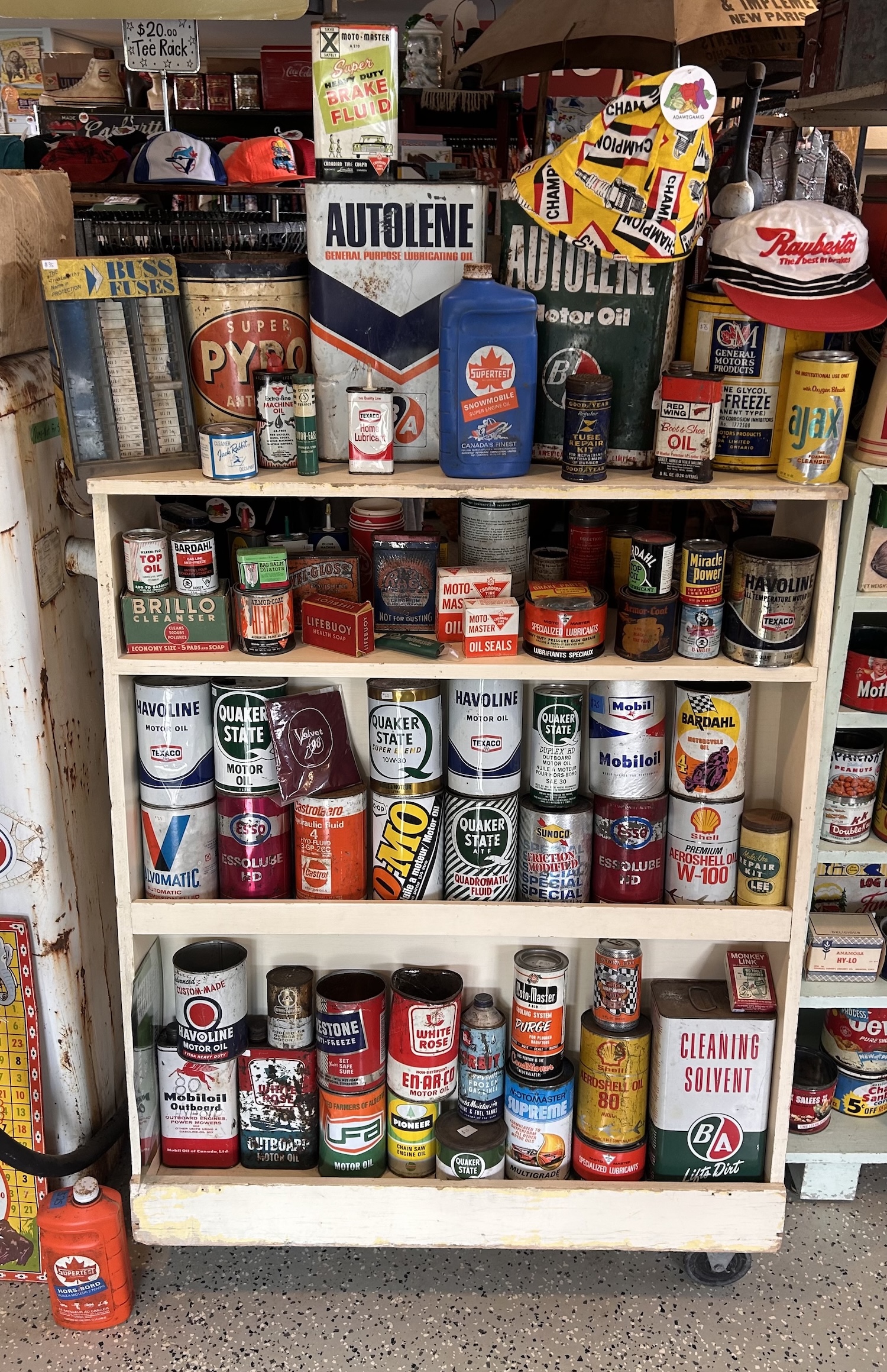
‘Stuff’ brings the community together
Justice and Bronwyn say they love to see the community come out both to the store and to the markets they attend.
Each outing gives their fans and friends a reason to gather again, especially at the Toronto Vintage Show, Canada’s largest vintage show and sale.
Adawegamig brings that community spirit home.
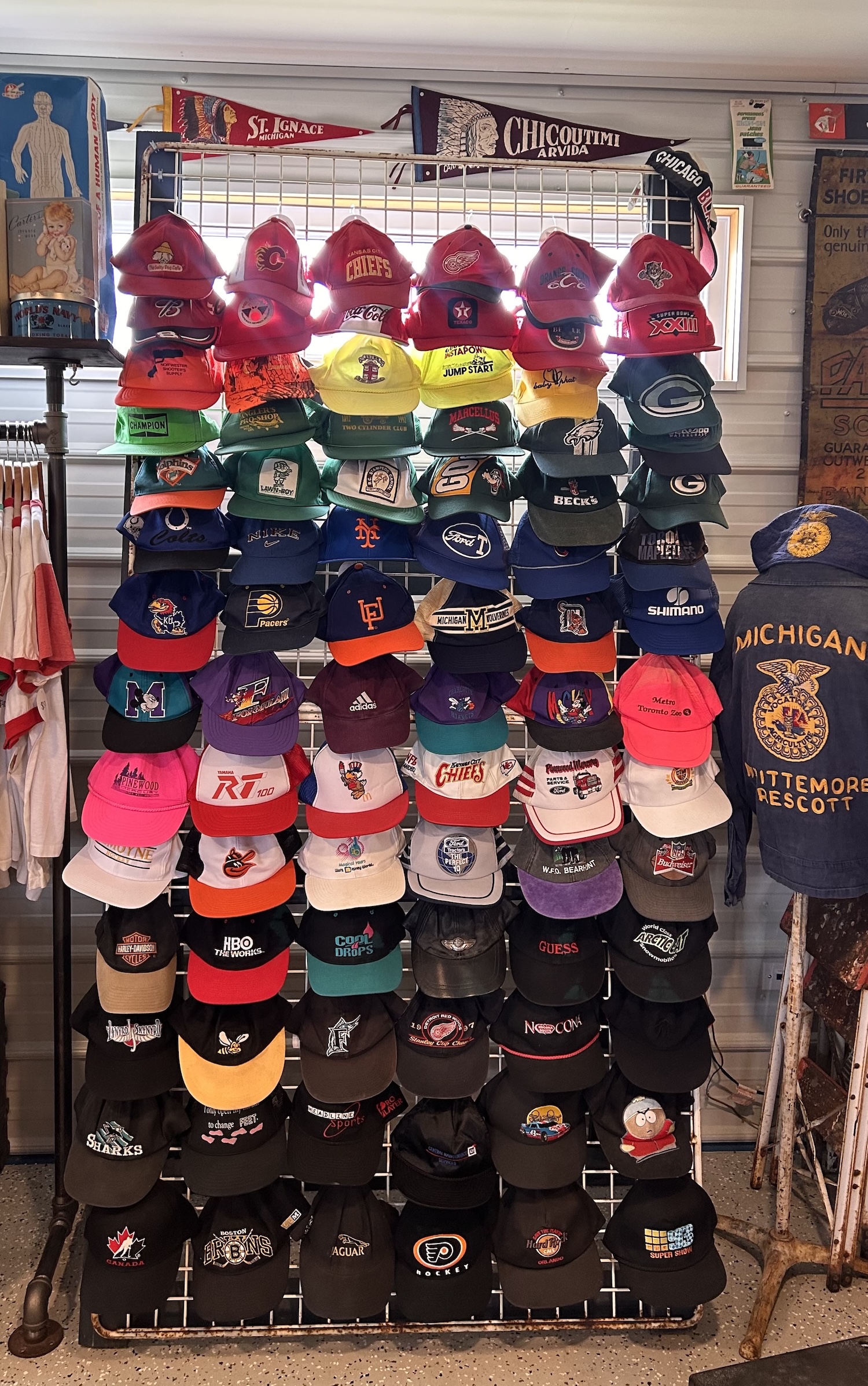
The people Justice and Bronwyn meet at markets and shows often later arrive at the store, having travelled from far and wide to see their spot on Scugog Island and sift through the retro patches, felt pennants and other nostalgic memorabilia in the store.
That’s the magic of vintage. It connects us to each other, to our histories, to the versions of ourselves we thought we’d outgrown.
Shops like Adawegamig remind us that no matter where we’re from, we’re all looking for something that feels like home.
Thank you for valuing our work!
Support our work to see this page.
You’ve got a good eye, but this gem is only available for members. Register for a plan or upgrade your current one to peek behind this vintage curtain, or log in below.




